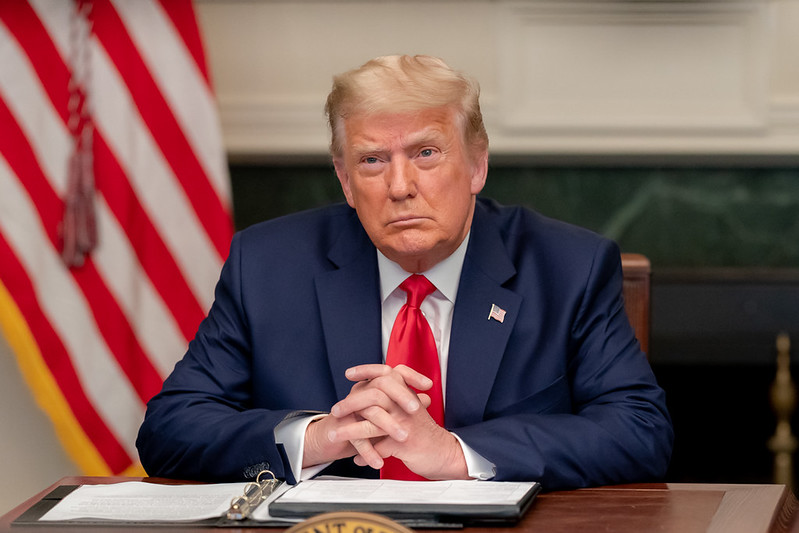President Donald Trump is preparing on Saturday to impose a range of tariffs on at least three countries — China, Canada, and Mexico — if they don’t comply with certain demands the administration has made regarding illegal immigration and illicit drugs like fentanyl streaming into the United States.
The administration will impose a 25% tariff on Mexico and Canada and a 10% tariff on China starting Saturday, White House spokeswoman Karoline Leavitt announced during a press briefing on Friday. The move follows longstanding threats from the Republican administration to implement import taxes unless all three countries take stronger action to curb illegal immigration and stop the smuggling of fentanyl into the United States.
“I was just with the President in the Oval Office, and I can confirm that tomorrow, the Feb. 1 deadline that President Trump put into place in a statement several weeks ago continues,” Leavitt said. “The President will be implementing tomorrow 25% tariffs on Mexico, 25% tariffs on Canad,a and a 10% tariff on China for the illegal fentanyl that they have sourced and allowed to distribute into our country, which has killed tens of millions of Americans.”
“These are promises made and promises kept by the president,” Leavitt continued. However, she was not yet able to comment on whether exemptions would be made for oil imports. Since returning to office, Trump has pursued an aggressive immigration enforcement agenda, leveraging his authority to compel other nations to cooperate. Most recently, he used the threat of tariffs to pressure Colombian President Gustavo Petro into accepting the return of Colombian nationals after initially refusing to allow deportation flights from the U.S., the Daily Caller reported.
During President Joe Biden’s tenure, there were approximately 8.5 million migrant encounters at the U.S.-Mexico border, marking an era of unprecedented border crises driven by migration through Mexico. This surge in crossings coincided with a sharp increase in fentanyl seizures, largely linked to Chinese chemical companies supplying precursor ingredients. Although at a lower scale than the southern border, illegal crossings at the northern border also saw a significant rise under the Biden administration.
In response to Trump’s efforts to tighten U.S. border security, outgoing Canadian Prime Minister Justin Trudeau increased border enforcement, traveled to Mar-a-Lago to meet with Trump, and dispatched officials to Washington, D.C., in hopes of averting a tariff dispute. However, Trudeau has made it clear that if Trump follows through with his import tax threats, Canada will issue a “purposeful, forceful but reasonable, immediate” response.
China and Mexico have also responded that they, too, would impose tariffs on U.S. goods, but Leavitt discounted the fear of a tariff or trade war. “I think Americans concerned with increased prices should look at what President Trump did in his first term,” she said. “He effectively implemented tariffs and the average inflation rate during the first Trump administration was 1.9%,” Leavitt continued. “President Trump is going to do everything he possibly can to cut the inflation crisis that the previous administration imposed on the American people and he will continue to effectively utilize tariffs.”



